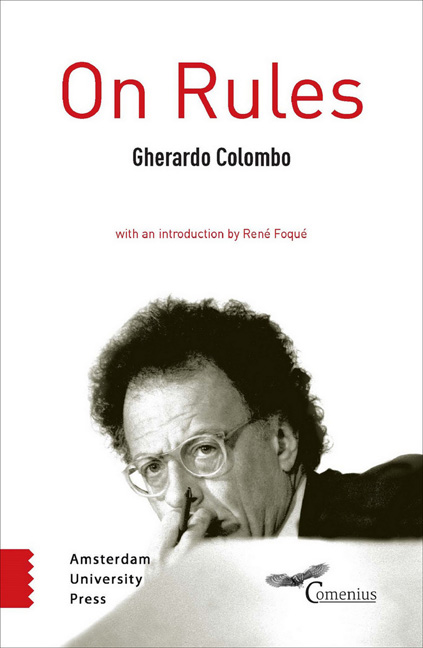Book contents
- Frontmatter
- Introduction: Gherardo Colombo’s Concern for the Democratic State under the Rule of Law: A Work in Progress
- Why?
- 1 An Imaginary Country
- Contents
- Part I The Ambiguities of Justice
- Part II Horizontal Society and Vertical Society
- Part III Towards a Horizontal Society
- Part IV How Do We Get There?
- Conclusion
- Acknowledgments
10 - The Horizontal Society
Published online by Cambridge University Press: 24 December 2020
- Frontmatter
- Introduction: Gherardo Colombo’s Concern for the Democratic State under the Rule of Law: A Work in Progress
- Why?
- 1 An Imaginary Country
- Contents
- Part I The Ambiguities of Justice
- Part II Horizontal Society and Vertical Society
- Part III Towards a Horizontal Society
- Part IV How Do We Get There?
- Conclusion
- Acknowledgments
Summary
There is another way of thinking about community, not based on hierarchy, but on the idea that humanity advances through a harmonious process in which the collaboration of everyone according to their abilities contributes to the liberty of individuals and the progress of society as a whole.
The founding element here is the very opposite of what leads to disproportion, separation, and exclusion. Humanity does not live, does not emancipate itself, does not progress by selection; rather it does so by paying attention to each of its members. The origin of this idea lies in the belief that all individuals are significant in themselves, that they embody a value, a dignity. This way of thinking is in turn the result of recognising in others the same ‘nature’ that everyone sees in himself or herself.
This recognition is not limited to the group you belong to: individuals do not only identify with themselves, their family, (some of their) classmates, supporters of the same football team, or with those who live in the same district, attend the same church, follow the same faith, have the same skin colour, speak the same language, or express the same ideas.
Recognising others - all others - has as an effect perceiving yourself as part of humankind (and not just of specific sections of humanity, like a family, a school, a fan group, a country, and so on) and the awareness of a connection, a common denominator with each of its members, namely the species.
The sense of belonging and identifying with others triggers discomfort by their problems and satisfaction at their well-being. All these feelings together form a texture which links anyone who participates in the social aggregation. It can be described as solidarity - if we take it to mean the awareness of belonging to a community and the willingness to offer and receive help in an attempt at better satisfying the needs of each member of the society.
In short, it is not unlike a family or (better still) a closely-knit group of friends, where mutual help, solidarity, and supporting each other in difficult times also extend to the other members of humankind.
- Type
- Chapter
- Information
- On Rules , pp. 57 - 63Publisher: Amsterdam University PressPrint publication year: 2016



